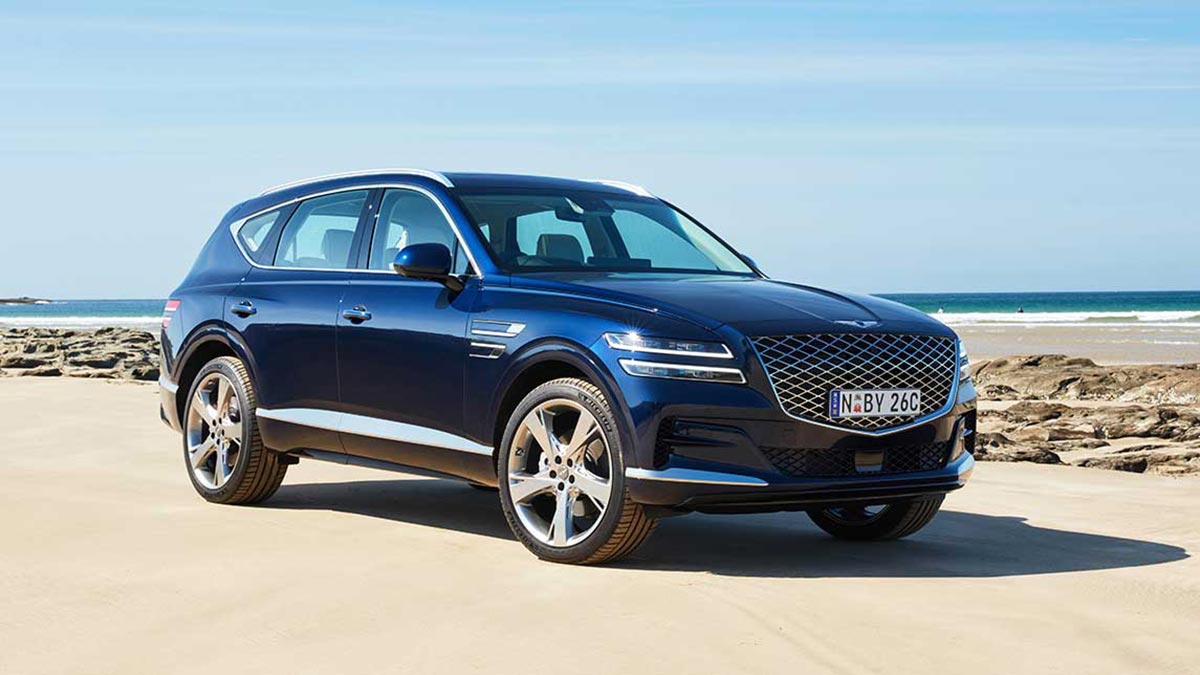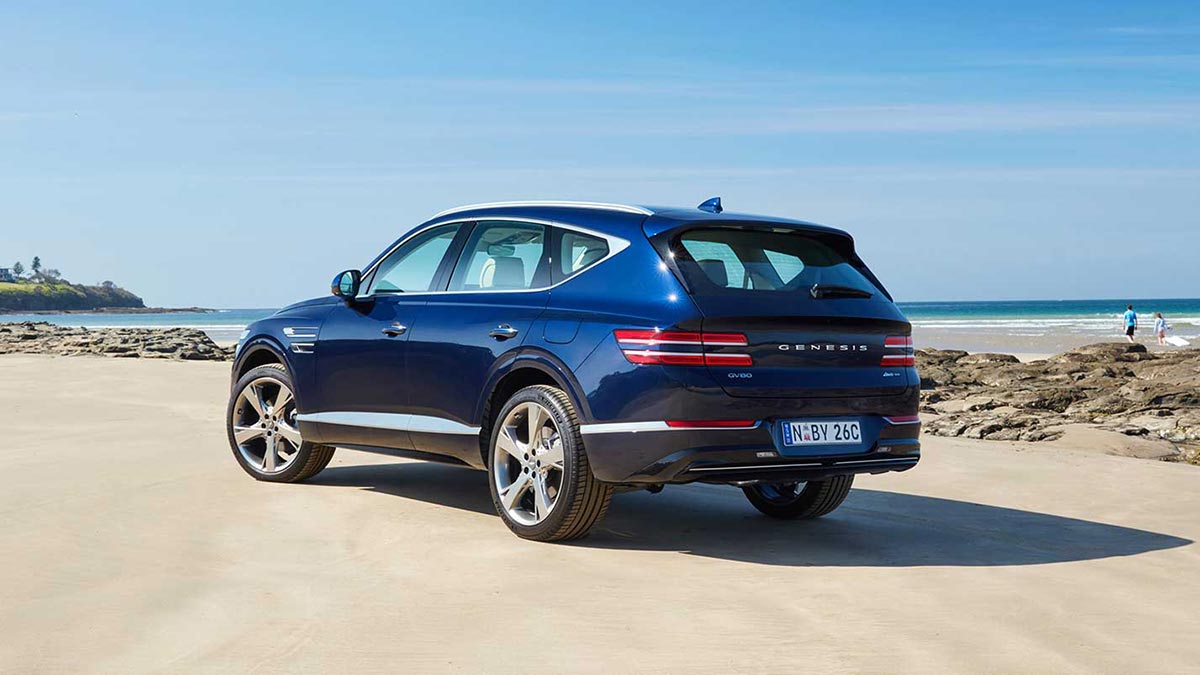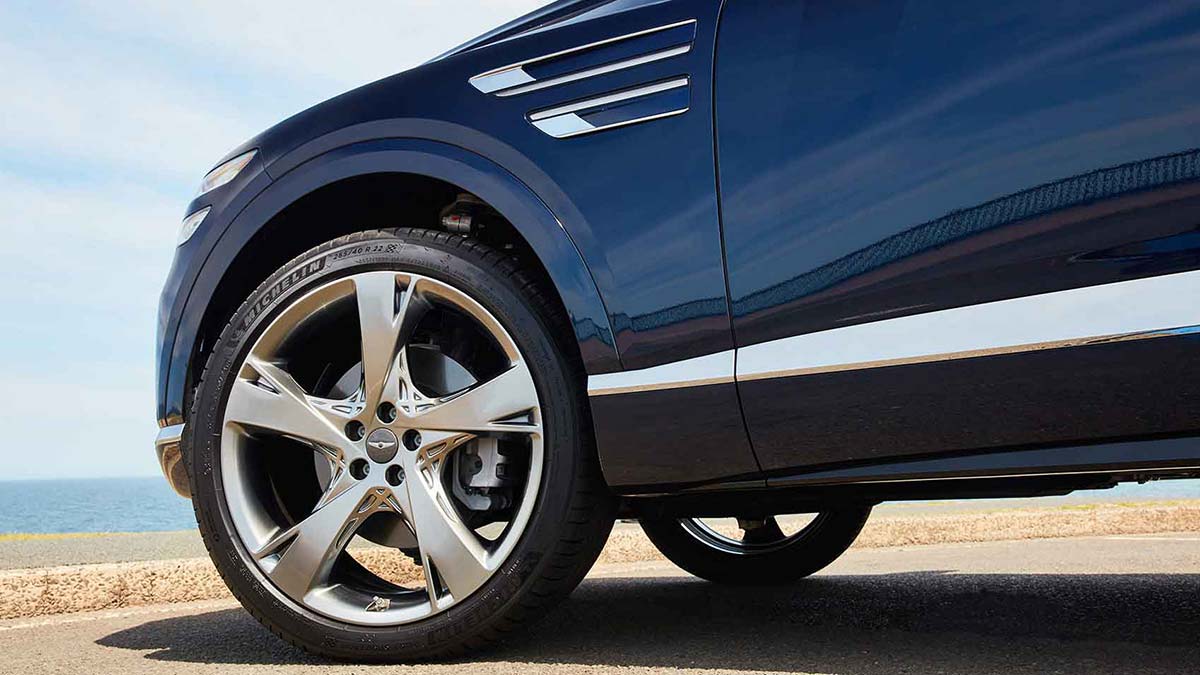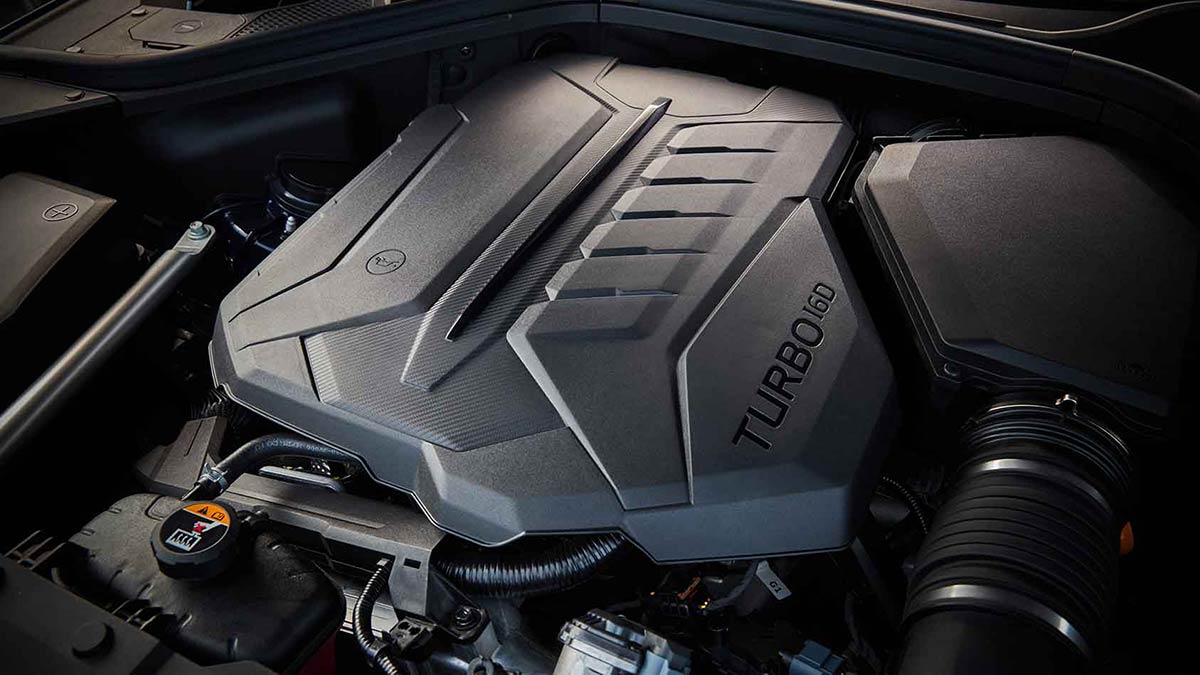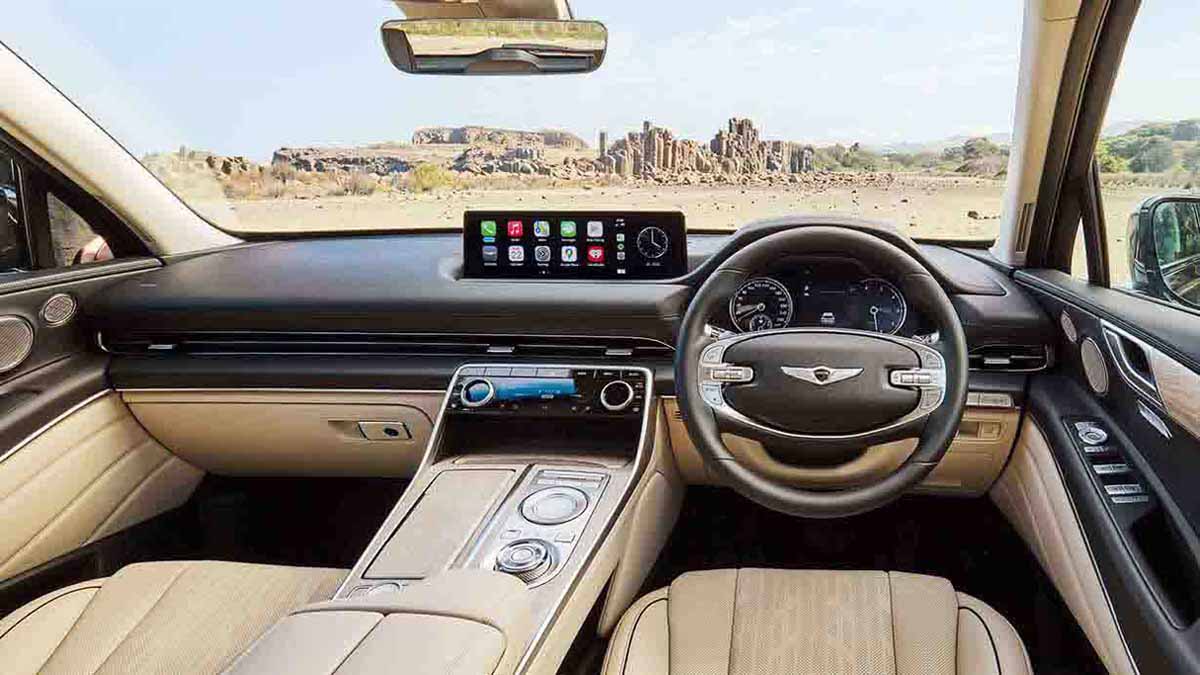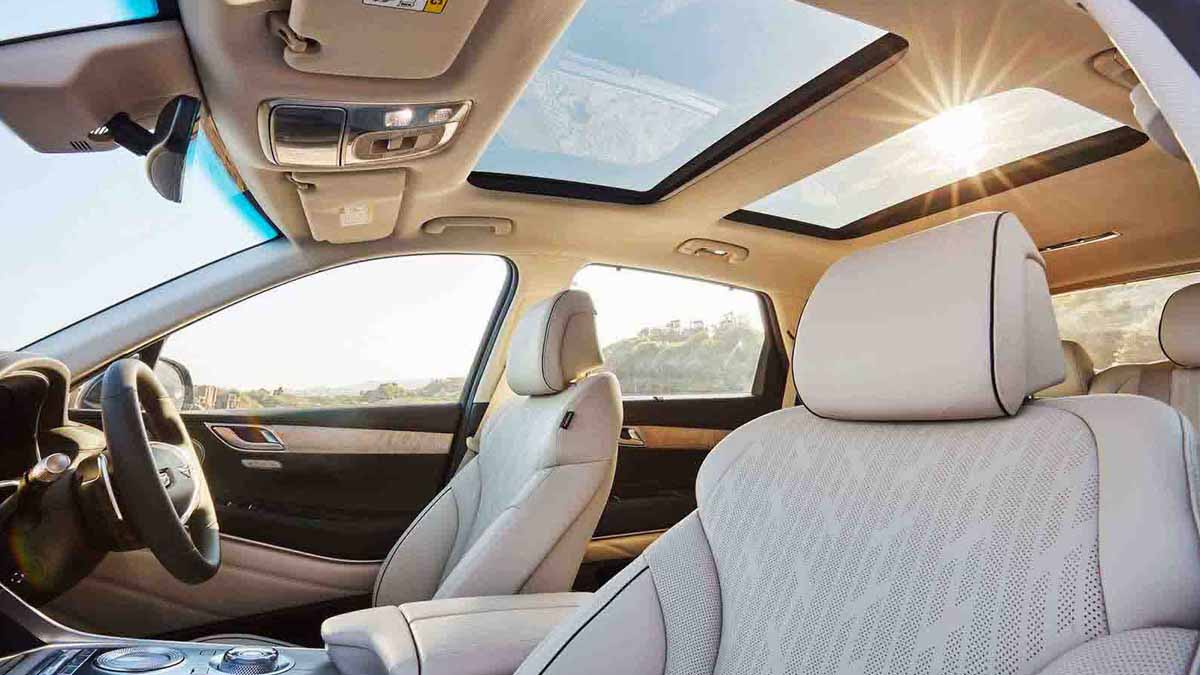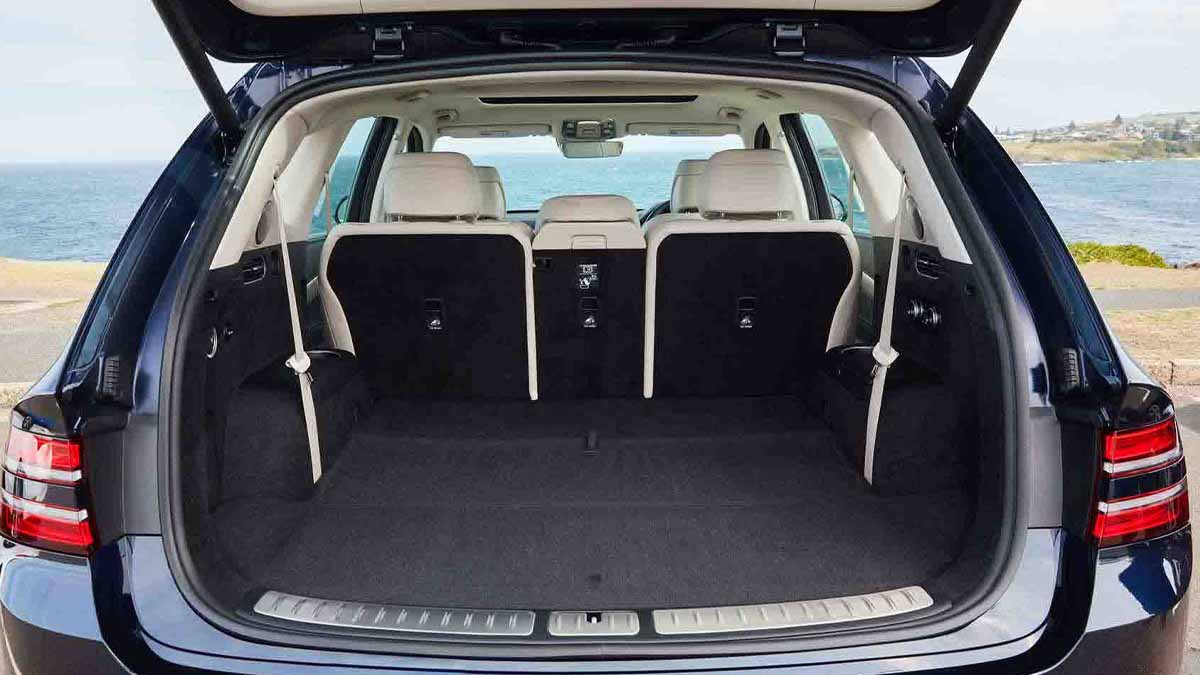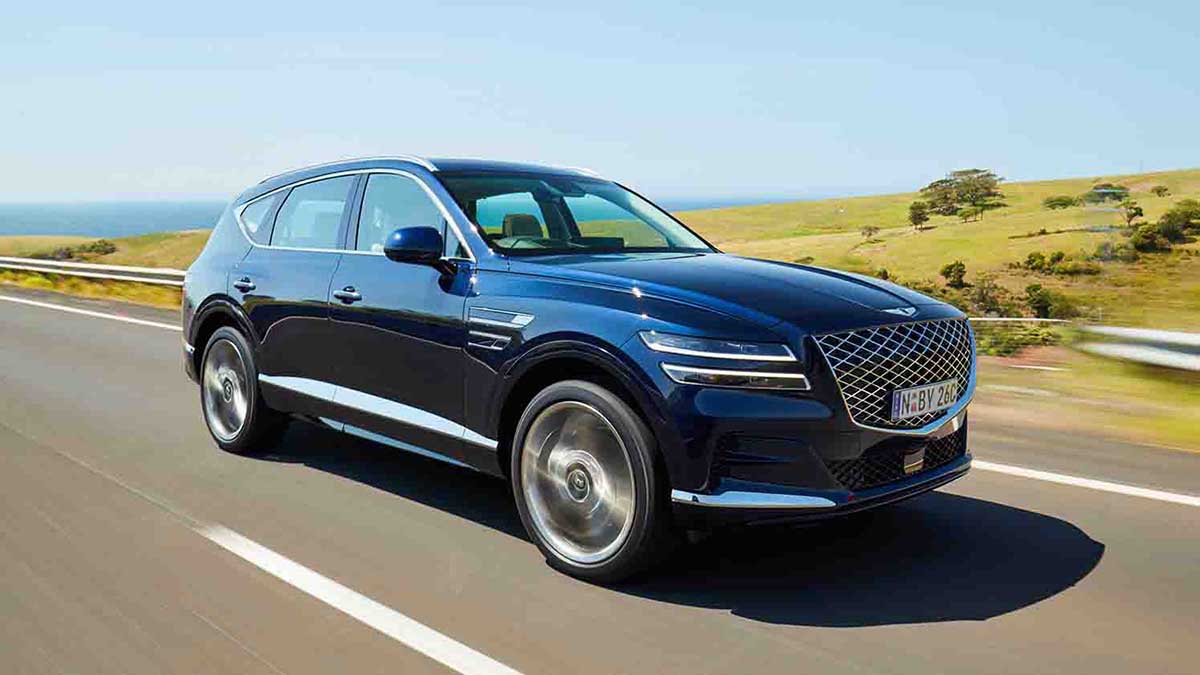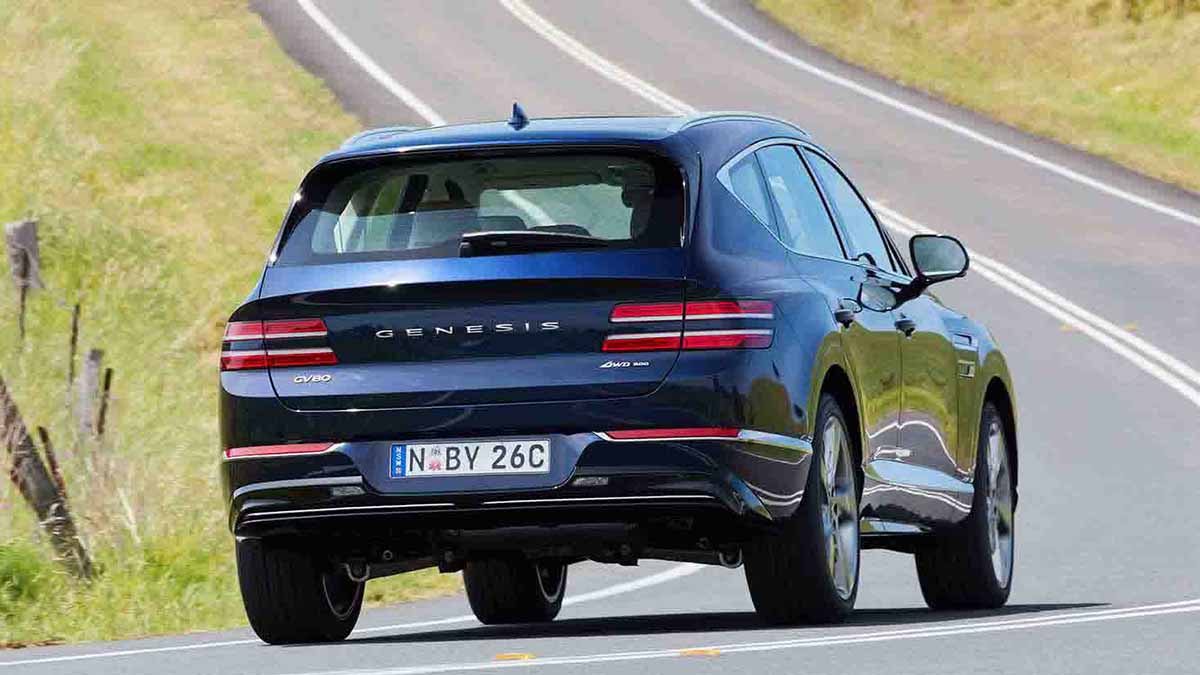The BYD Sealion 7 has quickly become one of Australia's best-selling electric vehicles, hitting the sweet spot with EV buyers and families looking for an affordable medium SUV with plenty of tech, space and practicality.
Genesis GV80 3.0D 2021 road test review

We take a look at the first SUV from fledgling premium brand Genesis - the GV80.
Genesis is one of the newest brands to have a go at the notoriously competitive Australian market. Genesis is to Hyundai what Lexus is to Toyota – a premium offshoot of a hugely successful mainstream manufacturer. Genesis started out with a pair of sedans – the G70 and G80 – before introducing the GV80 large SUV late last year. The GV70 medium SUV lobbed in August, while the all-electric GV60 crossover lands in 2022, ahead of a bunch of other electric models. In other words, Genesis has big plans for Australia. But is the GV80 just a Hyundai in drag, or is it a serious competitor for the established European and Japanese marques?
Thumbs up
Eye-catching exterior design, premium interior, punchy diesel engine, free servicing, generous standard equipment list.
Thumbs down
Ugly steering wheel, some road and engine noise in cabin, lacks dynamism of some Euro rivals.
How much does the Genesis GV80 cost?
To ensure Genesis appeals to as many buyers as possible, the company has priced the seven-seat GV80 very competitively. Offered with a choice of a 2.5-litre turbo-petrol engine in front- and all-wheel drive, a 3.5-litre turbo-petrol all-wheel drive and 3.0-litre turbo-diesel all-wheel drive, pricing ranges from $90,600 to $108,600 before on-road costs.
That might not sound super affordable, but it is when you consider the standard specification. Genesis has chucked everything into its flagship SUV. And we mean everything. The entry level 2.5T naturally misses out on a few luxuries found in the 3.0D and 3.5T, but the latter two are jam-packed. Compare any premium SUV of equivalent size and none of them will come close to offering the level of standard gear in the GV80.
Each of the German rivals – Audi Q7, BMW X5, Mercedes-Benz GLE and Porsche Cayenne – start north off $100,000, about where the GV80 tops out. More competitively priced rivals include the Volvo XC90, Volkswagen Touareg, Range Rover Velar and Lexus RX.
To further sweeten the already sweet deal, Genesis is offering free scheduled servicing for five years or 75,000km for the diesel GV80. And they’ll even arrange for your vehicle to be picked up and dropped off as part of the valet servicing program.
We tested the GV80 3.0D, priced at $103,600.
What safety features does it have?
Every GV80 model grade is fitted with a list of safety features that’s so extensive it doesn’t fit in our specification table (below). It is loaded with driver assist features and comes with a 5-star ANCAP rating.
The lane keeping aid tends to hold the SUV quite close to the driver’s side line marking, even if there is a vehicle in the next lane. But the adaptive cruise control’s stop and go function is useful and operates well.
What's the space like inside?
Firstly, a little about Genesis’ unique exterior design language. The split head and tail-lights common across all models is distinctive and visually striking. The overall design direction works on sedans and SUVs alike. The GV80 is handsome and has undeniable road presence.
There’s no questioning the brand’s premium credentials once you’re inside the GV80. The two-tone interior is plush and the overall look and feel is well executed.
The luxuriously comfortable front seats with white perforated leather and contrast black stitching offer ample upper body support.
Chrome touches and the brushed aluminium switchgear add to the premium vibe and the clean dash layout is visually appealing.
The steering wheel’s thick two-spoke design is very American – no prizes for guessing which market Genesis is chasing. While we’re no fan of the thick two-spoke hub, the graphics on the steering wheel controls are very cool. In fact, the neat graphics on all the switchgear is a cut above its rivals and a clever way to stand out.
The big 14.5-inch multimedia screen is a touch screen, but is also controlled via a dial in the console. To move through the menu, simply turn the dial or click the edges for the direction. As with other Hyundai Group products, it has an uncomplicated menu layout with cool graphics.
A huge central storage bin will swallow big items, but you won’t fit large bottles in the door pockets. The device charger nook is covered for added security.
The second row has loads of space for kids and adults alike, with ample head and leg room. The seats are comfy and there’s plenty of glass too. The carpet is plush and there are nice touches like coat hooks on the B-pillar and manual sunshades for the windows. There’s not a lot of storage in the doors but rear seat passengers can access air vents, USB and 12-volt outlets and map pockets.
To lower the 60/40 split-fold seats, simply tap the button located in the boot. Third row space is tight and only suitable for small children, but they have access to cup holders, audio speakers, storage and air-conditioning controls.
With the third row stowed the GV80’s spacious boot can swallow 727 litres, only slightly less than the Audi Q7 (740L). There’s no spare wheel, only a tyre repair kit, but you can stow the cargo blind neatly under the boot floor.
How does it drive?
Anyone that dismisses the GV80 as a fancy Hyundai should think again. The 3.0-litre turbo-diesel engine is exclusive to the Genesis brand and won’t be used in a Hyundai or Kia product.
It pumps out 204kW of power and a meaty 588Nm of torque from a wide range, resulting in much better response than the group’s 2.2-litre oil-burner we sampled in the Santa Fe the week prior. According to Genesis, the GV80 completes the 0-100km/h dash in just 6.8 seconds. Impressive stuff for a big diesel SUV that weighs more than 2.2 tonnes.
Once you get past the mild turbo lag, the GV80 quickly picks up speed and just keeps on pulling. This punchy powertrain is perfect for overtaking and it maintains serious momentum up any steep hill.
The big SUV’s heft is apparent when cornering, with some lateral movement. It can’t match the dynamic chops of the VW Touareg or Audi Q7 when it comes to handling, but it’s surprisingly grippy and can easily dart through a twisty section of road.
The local ride and handling program ensures a mostly comfortable ride, but low profile tyres mean you’ll notice sharper road ruts. There are no such issues on smooth urban streets.
As well as the ‘Multi Terrain Mode’ with snow, mud and sand settings, the GV80 has four driving modes – Eco, Comfort, Sport and Custom. Sport mode is much more responsive than Comfort and increases the fun factor. It further sharpens the heavy steering, but the ride quality is maintained.
The cabin is hushed on city streets but some engine and road noise creeps in at higher speeds and on coarse surfaces. A massive turning circle makes parking manoeuvres in tight urban streets challenging.
After a week of mixed driving our fuel economy figure of 10.8L/100km was a little more than the official 8.8L/100km claim from Genesis.
The verdict
Genesis has already achieved a lot in its short time on the Australian market. For its first attempt at an SUV, the GV80 impresses. While it’s not at the top of the segment just yet, the combination of a striking design, luxurious interior, willing powertrain and unbeatable value put it ahead of a number of its direct rivals. Dismiss the Genesis brand at your peril. This Korean upstart is about to seriously shake up the premium segment.
|
Pricing |
List price: $103,600 before on-road costs. Price as tested: $103,600 before on-road costs. Model range: $90,600 to $108,600 before on-road costs. |
|---|---|
|
Drivetrain |
3.0-litre, six-cylinder, turbocharged diesel engine, eight-speed automatic transmission, all-wheel drive. Power: 204kW@3800rpm. Torque: 588Nm@1500-3000rpm. Wheels: 265/40 R22. |
|
Fuel |
Diesel, 80-litre fuel tank. Consumption: 8.8L/100km (government test), 10.8/100km (RACV test). Emissions: 232g/km CO2 emissions. |
|
Standard safety |
5-star ANCAP rating, autonomous emergency braking with pedestrian and cyclist detection, lane keep assist with lane centring, adaptive cruise control with stop and go, rear cross-traffic alert, driver attention warning, 3D surround-view monitor, safe exit assist. |
|
Standard features |
Keyless entry and start with remote start, 12-way power adjustable front seats, wireless device charging, panoramic sunroof, power hands-free tailgate, head-up display, 14.5-inch touch screen with sat-nav, DAB+ digital radio, Apple CarPlay/Android Auto. |
|
Warranty |
Five-year/unlimited kilometre warranty. Five year/75,000km free scheduled servicing. Service intervals every 12 months/15,000km. Free valet servicing program. |
The information provided is general advice only. Before making any decisions please consider your own circumstances and the Product Disclosure Statement and Target Market Determinations. For copies, visit racv.com.au. As distributor, RACV Insurance Services Pty Ltd AFS Licence No. 230039 receives commission for each policy sold or renewed. Product(s) issued by Insurance Manufacturers of Australia ABN 93 004 208 084 AFS Licence No. 227678.
